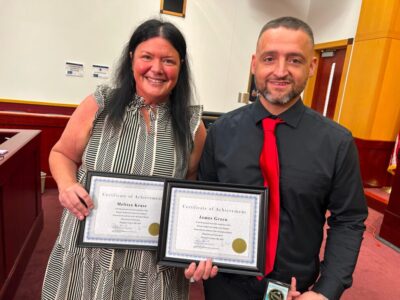Putin is Bismarck with a dash of Lord Nelson
The “surly drums of war” — a phrase from Winston Churchill, who knew the soundtrack of European history — again reverberate on a continent that thought it had heard the last of them. It has not even heard the last of Otto von Bismarck.
Vladimir Putin is emulating Bismarck, who used three quickly decisive wars — against Denmark in 1864, Austria in 1866 and France in 1870 — to create a unified modern Germany from what had been a loose confederation of states. Denmark lost a third of its territory and 40 percent of its population. Prussia’s seven-week war against Austria established the Hohenzollern dynasty, which Bismarck served, as dominant within the confederation. The Franco-Prussian War sealed Germany’s unity. By acquiring land, some German-speaking populations and an aura of national vitality, Bismarck’s wars of national creation stoked cohesion.
Putin believes, or wants the world to believe that he believes, that his war against Ukraine, now entering its ninth year, is an act of re-creation, bringing Ukrainians home to the community from which they were sundered when the Soviet Union expired. If Putin succeeds in reducing Ukraine to satellite status, and in inducing NATO to restrict its membership and operations to parameters he negotiates, he might, like Bismarck, consider other wars — actual, hybrid, cyber. The Baltic nations — Latvia, Lithuania, Estonia, all NATO nations — should worry.
Today’s crisis echoes 1938, when Hitler stirred the restiveness of separatists: ethnic Germans in Czechoslovakia’s Sudetenland. Therefore, today’s crisis also echoes 1918, when President Woodrow Wilson embraced “self-determination” as a universal right and “an imperative principle of action.” His secretary of state Robert Lansing wondered, “What unit has he in mind? Does he mean a race, territorial area, or a community?”
Wilson mistakenly assumed that “nations” and “peoples” are synonyms, or that they designate coterminous entities. In Putin’s plan to dismember Ukraine by embracing self-determination for ethnic Russian separatists, he, like Hitler in 1938, is exploiting careless rhetoric that ignores the fact that ethnicities do not tidily coincide with national boundaries.
Lansing, who called Wilson “a phrase-maker par excellence,” warned that “certain phrases” of Wilson’s “have not been thought out.” The “undigested” phrase “self-determination” is “simply loaded with dynamite.” Nevertheless, President Franklin D. Roosevelt and Churchill in their Atlantic Charter of August 1941 affirmed the right of self-determination for all “peoples,” which the United Nations Charter also affirms.
In 2015, the year after Putin sliced Crimea off Ukraine, his foreign minister, Sergey Lavrov, said Russia’s annexation was merely a response to the people of Crimea “invoking the right of self-determination.” This phrase can be used to sanitize the dismemberment of Ukraine — and some other nations (see above: the Baltics). And perhaps can reduce nations supposedly supporting Ukraine to paralytic dithering about whether sanctions, or which sanctions, are an appropriate response to an aggression wielding a Wilsonian concept.
Much of Putin’s geopolitics consists of doing whatever opposes U.S. policy. Call this the Nelson Rule. Before the Battle of Trafalgar, Lord Nelson, meeting with some of his officers, reportedly picked up a fire poker and said, “It matters not at all in what way I lay this poker on the floor. But if Bonaparte should say it must be placed in this direction, we must instantly insist upon its being laid in some other one.” Regarding the United States, Putin is Nelsonian.
Nine years after President Barack Obama said Bashar al-Assad “must go,” the Syrian leader is still there, partly because of Putin.
Practice supposedly makes perfect, but not yet for Putin’s regime. It has had abundant experience with lying, but this has not made it an even competent liar. When leaders of the pro-Russian separatist movement in eastern Ukraine released videos claiming attacks on ethnic Russians, it was quickly established that the videos were recorded two days before the separatists said the attacks occurred.
But raw power lubricated by audacious lying is Bismarckian. In July 1870, the French ambassador to Prussia asked King William of Prussia for certain assurances, which the king declined to give. Bismarck edited a telegram describing this conversation to make the episode resemble an exchange of insults. Passions boiled in both countries, and France declared war, which Bismarck wanted because he correctly thought war would complete the welding of the German states into a muscular nation.
Bismarck was clever. Putin, with his feral cunning, might be a clever imitator.
——
George Will’s email address is georgewill@washpost.com.




